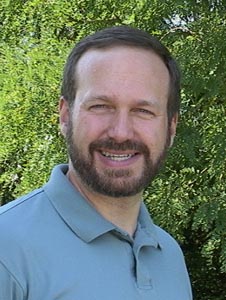 I'm back as promised, toned, tanned, and terrific! Well, maybe only one of those. I'll let you decide which one.
I'm back as promised, toned, tanned, and terrific! Well, maybe only one of those. I'll let you decide which one.
As a kid, I remember the first day back to school started many times with an essay, "What I Did During My Summer Vacation." I wish I could say that such exercises passed away many moons ago, but the sad truth is they linger on. Especially at blogs run by harried bloggers.
So with that topic in mind, I present the rundown of my activities the last few weeks:
1. My son started HOMESCHOOL.
There. I started a flame war just by using that label. I'll be talking about labels soon, seeing that within the first week of my absence, labels assumed a prominent role in my life as other people went nuts trying to label me, or unlabel me, as the case may be.
Anyway, school's going fine. I should hope so considering I have an education degree.
A bit o' homeschooling fun: If you're a male and wish to experience "the other side of life," go to any meeting that revolves around homeschooling. For added hilarity, leave your spouse at home. While the homeschooling program we're using isn't quite as rabid as some, nothing spells "frightening loner" than showing up male at a homeschooling event sans your female consort.
2. I wrote—constantly.
Talk about being a prisoner of the keyboard! I think my nearly 44-year-old eyes finally waved the white flag. For years I maintained perfect vision. In the last two years, though, I've seen (no pun intended) a progressive diminishment of arm length. Oddly enough, when writing, if I stretch out my arm, my montor is six inches beyond my upraised palm. That explains much.
Anyway, I wrote a horror piece that got an encouraging rejection from the leading horror lit magazine. I wrote it as an exercise in developing a full story arc in under 2500 words. I think it works well, but the magazine thought it could profit from being longer. I may rewrite it. We'll see.
I also wrote a controversial piece of speculative fiction sure to alienate both secular and Christian readers. It's too Christian for the secularists and too sexual for the Christians. Definitely a redemptive storyline, but like most of what I write, I suspect no market will dare touch it. I submitted the first half to my critique group and they loved it. Later this month we'll see if they liked the second half as much.
I spent about sixty hours editing my novel and I'm STILL not finished. About a hundred pages to go. One thirty-five page section consumed nearly twenty hours. I've burned up more time editing than I did writing the first draft! Being used to works under fifty pages, which comprise about 99 percent of what I write, I totally mismanaged the editing process for my novel. I'm sure I tripled my work by failing to use a more logical editing approach. If any of you novelists out there have any advice or tools for editing, let me know.
Writing…always writing.
3. I read—constantly.
When I wasn't writing, I read. A writer needs a feel for what's getting published, so I sent out feelers by reading more novels during my hiatus than any other six-week stretch I can remember. Hoping to understand popular writers, I read outside my usual suspects.
Never having read a Dean Koontz novel in my life, I picked up The Taking. For the purposes of my mission, I'd hoped to avoid any kind of pseudo-Christian themes in any secular authors I read, but failed miserably by choosing this book. If LaHaye & Jenkins' Left Behind series met The Exorcist, Naked Lunch, and a large stash of peyote, you'd have The Taking. If you wish to speculate on what the Rapture would like like if Satan ran it, you'd have this book. By all means, skip. And let me end by saying that it's hard to read this book and not question whether a committee wrote it. The prose wandered between outright purple and brilliant. Unfortunately, the former won.
I read Ted Dekker's Obsessed, and by the time I'd completed it, I wondered if I'd accidentally picked up a Ted Dekker parody. More than once I checked the cover to see if the name on the book read "Tedd Dekker" or "Ted Dekkker." So over-the-top it bordered on camp, Obsessed had me in stitches when I should have been crying. I know Dekker can write, but this smacked of contractual obligation and a ridiculous deadline. Read anything else he's written, but avoid Obsessed like the plague.
At last year's American Christian Fiction Writers conference, I had the pleasure of meeting Kathryn Mackel. She told me the premise of her upcoming book, The Hidden, and it knocked me out. A psychiatrist who lost her mother and son to suicide (and her husband to a brain aneurysm) ventures back to her father's Colorado dude ranch when dad takes a nasty fall and mangles a leg. After botching the delivery of a prized foal that represents her father's entire financial future, she bolts into the mountains on an unfamiliar horse that tosses her into a ravine. To her astonishment, she finds a young man chained in the bottom of the ravine outside a cave, the key to his shackles a few inches out of his reach. Wow. How can you not want to read a novel with a premise that good? Fortunately, Mackel delivers on the premise with strong characters and enough chills to keep spec fic readers happy. Though I felt she threw readers a few too many false leads on the young man's identity, the story held up. If you like supernatural thrillers, you'll like The Hidden.
Randy Ingermanson served as my writing mentor at the same conference where I met Kathryn Mackel. His book Double Vision explores a high tech startup's woes when they develop a sophisticated cryptography method that could get them killed by competitors, the US Government, the mafia, or anyone else looking to crack RSA encryption. Obviously, Randy's got a hard science background. That makes him a rarity in Christian fiction. Though I wanted to like this one (since I worked for a startup), I thought Randy tried to please everyone with his ending. The implausible result undid everything that came before. I will give Randy a kudo for brilliant marketing, though. He creates storylines that tie-in characters from his other books. I liked that one of the characters in this book is the cousin of one of Randy's well-known characters. That's not easy to do without seeming forced.
I'm not yet through Carl Hiaasen's Skinny Dip. So far, this book's been my favorite of the bunch (despite being tawdry in spots). Hiaasen's world-building should be a model for all writers. His descriptions slay me, and his characters, despite their implausibility, live and breathe like real people. Though just about everyone in the book is missing more than his or her fair share of grey matter, I've met these people. That's good writing and one of my beefs with most of the Christian fiction I've read. In too many Christian novels, the lead characters don't resemble anyone I've ever met. Too often they're an amalgam of certain "writerly" traits, so much so that their Christianity feels plastic to me. They're not so much written as they are designed.
I also read some non-fiction, specifically David Fitch's The Great Giveaway, a book which made me wonder if the author had cribbed from this blog! I'll be discussing the book in days ahead.
4. Geocached.
I've been enjoying this new hobby, one of the few I have. Gets you into the outdoors. Can be great exercise. I'd encourage anyone reading this to consider the sport. Kids love it and so do adults. You can go as hardcore as you want, or just dabble in it. A GPS receiver and Geocaching.com are all you'll need to get started.That's it.
Not a very exciting vacation, eh?
I missed out on writing about the death of Steve Irwin (of Crocodile Hunter fame) in a horribly unlucky encounter with a normally docile creature. Even stranger was the wish fulfillment displayed by so many Christian fans of Steve when the rumor started that he'd come to Christ a month before his death. I'm not going to touch that one.
I didn't read blogs much, but I do have a few posts I'll comment on in the days ahead.
The Wall Street Journal, just days after my hiatus began, featured an article discussing what happens to a blogger's blog when he or she goes on vacation. Nice synchronicity on that one, huh? Cerulean Sanctum proved the article's point: you've got about three weeks before the traffic hemorrhaging begins. My first three weeks away didn't see much traffic fall-off. The last three, on the other hand, have been extreme. If I held out another two weeks, Cerulean Sanctum would probably die on its own. Or I could just post once a week on homeschooling and live off the weekly traffic spikes.
That's all for today. Stay tuned for what the rest of the week brings.

 Every week I get private e-mails from folks saying that this blog has been a blessing just by being unafraid to confront the Gordian Knots that face the American Church. I thank every one of you who have written. Your notes mean the world to me.
Every week I get private e-mails from folks saying that this blog has been a blessing just by being unafraid to confront the Gordian Knots that face the American Church. I thank every one of you who have written. Your notes mean the world to me.